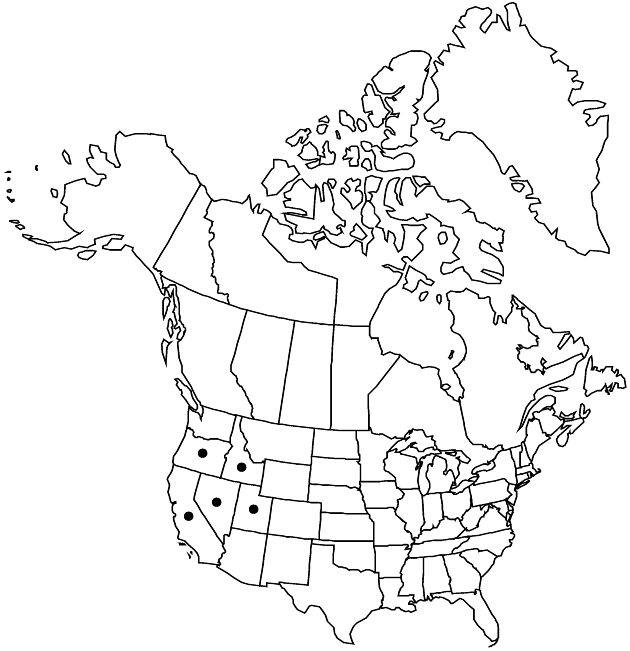Difference between revisions of "Pyrrocoma racemosa var. paniculata"
Phytologia 71: 610. 1991.
FNA>Volume Importer |
FNA>Volume Importer |
(No difference)
| |
Revision as of 18:45, 24 September 2019
Plants 20–75 cm. Stems glabrous. Leaves: basal blades oblanceolate to elliptic, 50–250 × 5–25 mm, rather thick and succulent, margins entire or denticulate, faces glabrous, often glaucous. Heads pedunculate or sessile, often crowded distally, in narrowly paniculiform, racemiform, or spiciform arrays. Involucres hemispheric, 6–8 × 8–12 mm. Phyllaries: bases pale, margins sometimes ciliate, apices erect, green, acute, faces glabrous. Cypsela faces glabrous or densely sericeous. 2n = 12, 24.
Phenology: Flowering Jul–Oct.
Habitat: Alkaline meadows, open fields, around hot springs and boggy areas
Elevation: 100–2500 m
Distribution

Calif., Idaho, Nev., Oreg., Utah.
Discussion
Variety paniculata is recognized by its relatively small involucres and glabrous phyllaries. This is the most variable variety and here includes a number of forms previously treated as separate varieties or subspecies. Both diploid and tetraploid races occur; there appears to be no corresponding morphologic differences (R. A. Mayes 1976).
Selected References
None.